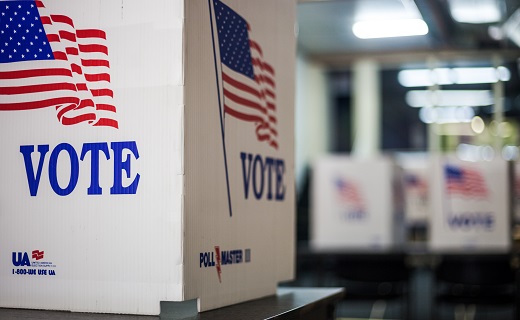Politics
Just in! DC Just Proposed a Major Mail-in Ballot Bill That Would Affect Voting

Washington, D.C. is considering a new bill that would allow the municipality to send mail-in ballots to all qualified residents, regardless of whether or not they are registered to vote.
Bolts, an online publication, reports that “the city would take information it collects when residents interact with the Department of Motor Vehicles [(DMV)] and other agencies to maintain a constantly-updating list of people who are ‘preapproved’ to vote,” with the only obligation of those on the list being “to vote come election time.“
“A newly proposed bill in Washington, D.C. would allow the city to automatically send mail-in ballots to all residents deemed eligible to vote, even if they aren’t registered.” #VoteByMail #CheatByMail #2000Muleshttps://t.co/NmDrKiwQiL
— OregonTeaParty (@OregonTeaParty) September 14, 2022
According to the Bolts report, the new rule would pre-qualify individuals as voters, even when they are not technically on voter lists, as long as they have submitted certain documents, the city would check and record them as qualified: this would make them able to vote in advance. After a voter is approved, the District will send them a mail-in ballot for every election over the next two years. In other words, they would never have to actively register… Washington, DC would also let them know that they can vote by mail or in person to confirm their registration.
On Friday, the D.C. Council, which was introduced by Councilmember Charles Allen, will hold its first public meeting on the measure. Allen defended the proposal in a statement sent to Bolts, saying that voter registration “has been used as a way to keep people from voting” and that it’s “a way to be a gatekeeper as to who you think should be able to vote.”
He continued, “Unlike other parts of the country where we’re seeing folks want to restrict the ability of people to get to the polls and to vote, in D.C., we want everyone to be able to vote.”
In 2016, the District of Columbia established a “front-end” automated voter registration (AVR) system, in which citizens are asked up front by institutions like the DMV if they want to be automatically registered to vote or opt out.
The proposed “back-end” system stipulates that people “who provide documents that indicate that they are U.S. citizens are automatically registered to vote and they are not asked any further questions while at the public agency; they later receive a mailer at home, and they can return it if they wish to opt-out,” while those who “do nothing at all… remain registered to vote.”
In addition to Oregon and Colorado, Alaska is also among the states with “back-end” systems.
Despite the fact that Allen’s measure wouldn’t necessarily enroll people in D.C., Bolts determined that “it’s guided by a similar concept that it’s truly up to public authorities to examine someone’s eligibility based on the information they’ve already supplied.”
Allen has supported other election-related bills in the recent past, including one in 2021 to implement universal, permanent mail-in voting and another in 2020 to expand voting rights to convicted criminals.

